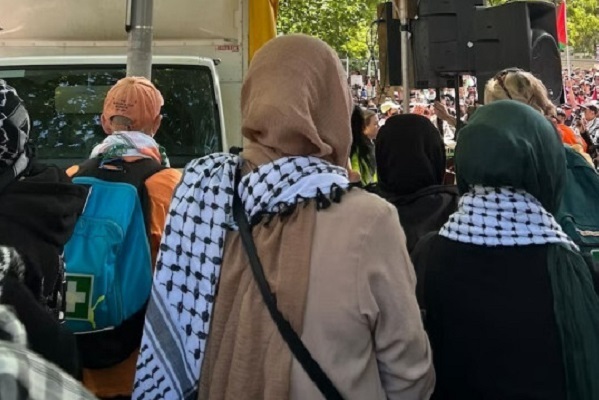Belgium's Religious Discrimination: 9 Out of 10 Cases Involve Muslims, Rights Group Says

This is according to Patrick Charlier, director of Belgium’s Interfederal Centre for Equal Opportunities (Unia). Charlier expressed serious concerns about the widespread hostility faced by Muslims, especially veiled women, in areas such as employment, education, and housing.
A report released by the EU Agency for Fundamental Rights (FRA), “Being Muslim in the EU: Experiences of Muslims,” highlights a rise in anti-Muslim sentiment across Europe, with Belgium reporting some of the most troubling trends.
Conducted between October 2021 and October 2022 and based on surveys from 9,000 Muslims across 13 EU countries, the study found that nearly half of Muslim respondents report facing discrimination daily. In Belgium, 43% of Muslims reported experiencing housing discrimination.
Read More:
Charlier, who has led Unia since 1993, stressed that the discrimination faced by Muslims in Belgium stems not only from religion but also from factors such as skin color, ethnic background, and immigration status.
“For Belgium, when we're speaking of religious and philosophical belief, it's 90% concerning Muslims. The vast majority, nine cases out of ten, involve Muslims facing discrimination, hate speech, and hate crimes,” he said, Anadolu Agency reported on Saturday.
Incidents of discrimination have been particularly severe in employment, where women who wear headscarves are often the primary targets, according to Charlier. Between 2017 and 2023, Unia addressed numerous cases of employment discrimination, along with incidents on social media and in schools.
"The most remarkable cases are in employment, with a majority of victims being women, especially those who wear headscarves," he noted.
Read More:
While anti-Muslim discrimination is reportedly stable rather than rising sharply, Charlier underscored the gravity of the issue. "I think discrimination, hate speech, and hate crime is grave. I don't want to undermine the reality and the difficulty for Muslims in our country. That’s a reality. It’s not highly rising. It’s stable," he said.
Charlier also connected the ongoing Islamophobia to broader xenophobic discourse around migration and asylum seekers, which indirectly targets Muslim communities.
“The discourse against asylum seekers and migration isn’t always directly focused on Muslims, but it often involves stereotypes about Muslim migrants from places like Syria, Palestine, and Afghanistan,” he explained, noting that these cases are typically categorized as xenophobia rather than religious discrimination.
Source: Agencies



